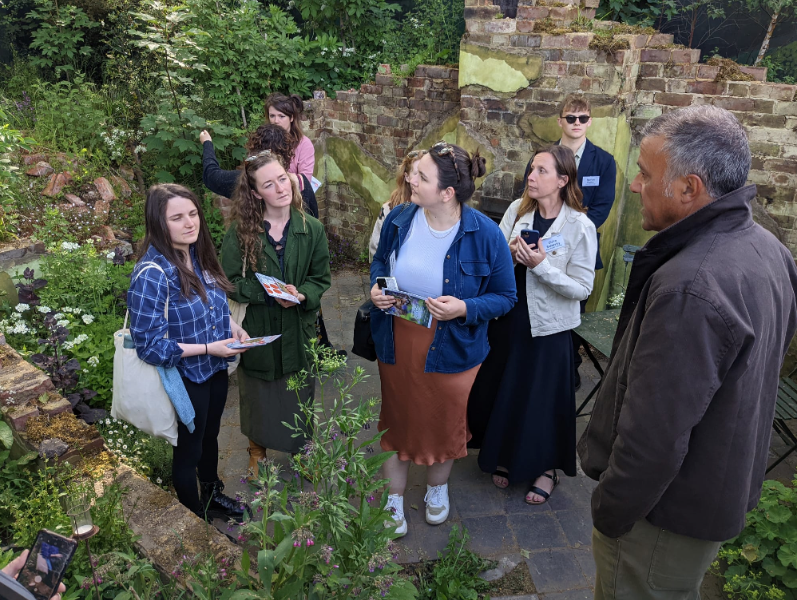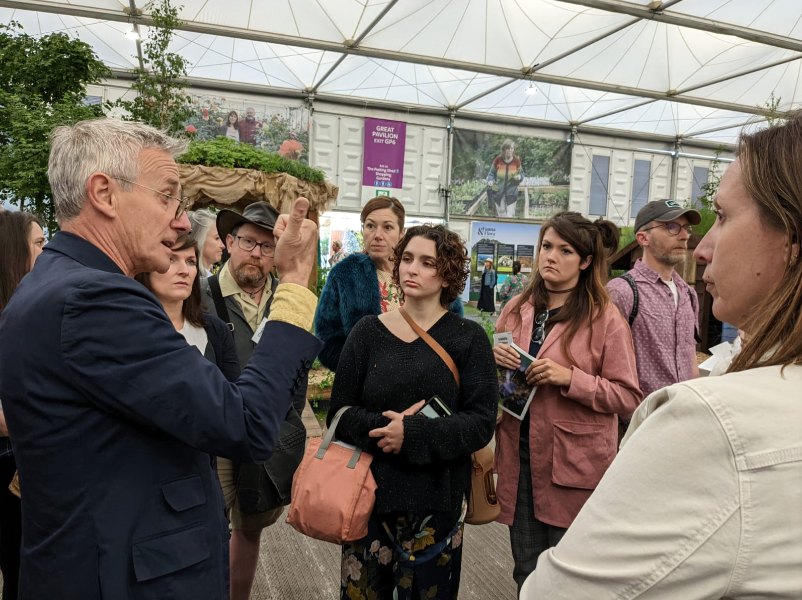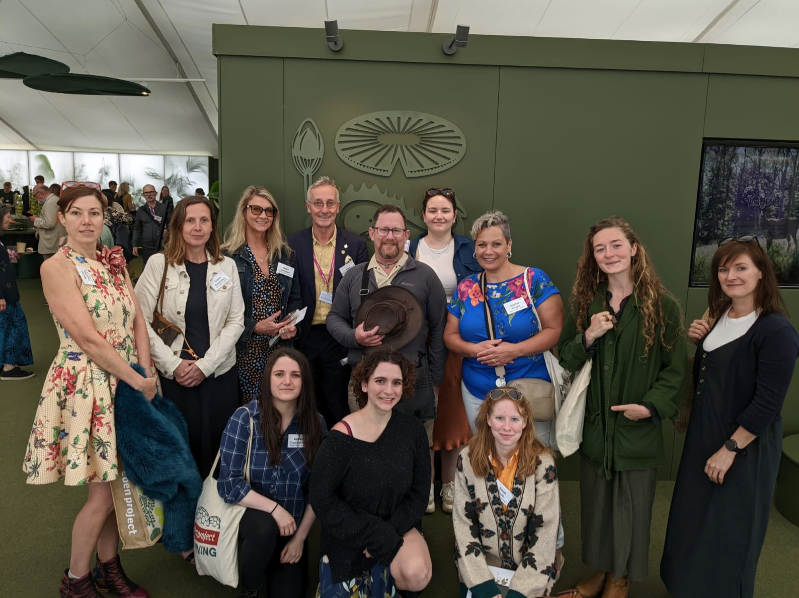
Topic outline
Main course page
-
-
For some good introductory tutorials, watch The Middle-sized Garden for inspiration and tips on creating gardens people will love by journalist and author Alexandra Campbell, who has worked for Britain's top magazines and newspapers including, Good Housekeeping, Harpers and Queen, The Daily Telegraph, The Times magazine and more. Please click the link above to watch.
-
Grow, Cook, Eat, Arrange is the weekly podcast from gardener, writer, teacher, and cook, Sarah Raven. Over the last two decades, Sarah has led the way by introducing a new kind of productive gardening which emphasizes intense colour, sophistication and achievability. Recorded at the beautiful Perch Hill Farm in Sussex, Sarah talks with special guests from across garden design, floristry, food, ecology, conservation and more. Brimming with top tips and helpful. Please click the link above to learn more.
Please Note: A Spotify account is required.
-
Gardens are more than collections of plants. Gardens and gardeners are intersectional spaces and agents for positive change in our world. Cultivating Place: Conversations on Natural History and the Human Impulse to Garden is a weekly public radio program and podcast exploring what we mean when we garden. Through thoughtful conversations with growers, gardeners, naturalists, scientists, artists and thinkers, Cultivating Place illustrates the many ways in which gardens are integral to our natural and cultural literacy. These conversations celebrate how these interconnections support the places we cultivate, how they nourish our bodies, and feed our spirits. They change the world. Please click the link above to learn more.
Please Note: A Spotify account is required.
-
Interesting discussions around the contemporary issues we face. Please click the link above to learn more.
-
Have a look at the amazing planting pocket entries completed by current HNC GLD students in 2024! Please click the link above.
-
Have a look at the amazing planting pocket entries completed by current HNC GLD students in 2024! Please click the link above.
-
Monty Don visits the world's 80 most inspiring gardens. Please click the link above to learn more.
Please Note: A BBC account is required.
-
Monty Don on a grand tour of Italy visiting gardens in Florence and Tuscany. Please click the link above to learn more.
-
Gardens are more than collections of plants. Gardens and gardeners are intersectional spaces and agents for positive change in our world. Cultivating Place: Conversations on Natural History and the Human Impulse to Garden is a weekly public radio program and podcast exploring what we mean when we garden. Through thoughtful conversations with growers, gardeners, naturalists, scientists, artists and thinkers, Cultivating Place illustrates the many ways in which gardens are integral to our natural and cultural literacy. These conversations celebrate how these interconnections support the places we cultivate, how they nourish our bodies, and feed our spirits. They change the world. Please click the link above to learn more.
Please Note: A Spotify account is required.
-
The Landscape Architecture Podcast's mission is to explore the hidden stories, innovations, and ideas that shape the landscapes around us. Through in-depth conversations with designers, planners, and visionaries, we delve into landscape architecture's art, science, and impact. Each episode seeks to uncover how our design spaces reflect our values, influence our lives, and transform our world. Please click the link above to learn more.
-
On the Down the Garden Path Podcast, landscape designer Joanne Shaw discusses down-to-earth tips and advice for your plants, gardens, and landscapes. She believes it's important and possible to have great gardens that are low maintenance. Please click the link above to learn more.
Please Note: A Spotify account is required.
-
Their members represent the very best in garden and landscape design, from small courtyards and roof gardens to country estates and urban parks. Please click the link above to learn more.
-
The Landscape Institute (LI) is the chartered body for the landscape profession. It is an educational charity that promotes the art and science of landscape practice. The LI’s aim, through the work of its chartered members, is to ‘protect, conserve and enhance the natural and built environment for the public benefit’. Please click the link above to learn more.
-
There’s nothing else in the garden media world like Thinking Gardens. You’ll find a collection of challenging, entertaining and exciting garden writing, all contributed for free by some of our very best garden writers. Please click the link above to learn more.
-
Established in 1972 the British Association of Landscape Industries promotes, supports and inspires over 900 Accredited members, including landscape contractors, landscape architects, garden designers and suppliers to be leaders of an environmentally, ethically and commercially sustainable landscape services industry. Please click the link above to learn more.



